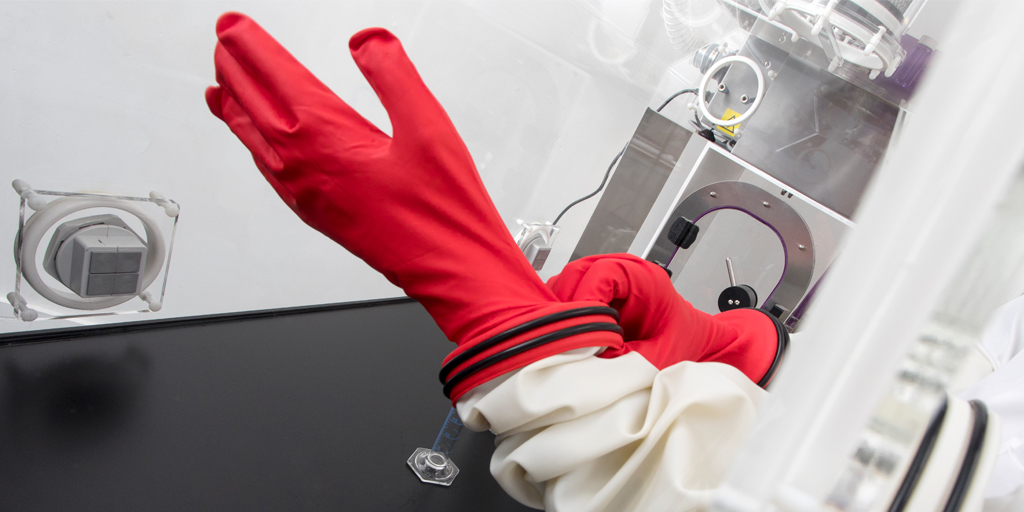Laboratory Nitrile Gloves are instrumental for regulating safety and are a common component within the lab environment.
Working and operating within a lab environment requires technicians to wear specialised gear. Functioning to protect operators from hazardous material, specialised gear plays a critical role within lab environments. Being an integral component for meeting safety standards, gloves protect the hands of the operators against absorption of any chemicals, which can lead to thermal burns, lacerations, cryogenic liquid exposure and chemical burns. Yet, choosing an appropriate glove can become a challenge within a laboratory setting. This is owing to the range of specimen and material that a lab may handle, such as radioactive material or biological material, e.g. viruses.
Nitrile is essentially a synthetic rubber material that offers abrasion and chemical resistance paired with a suitable general-duty material for gloves. Extending forward superior performance, a nitrile glove works for a variety of applications and a diverse range of industries.
With professionals from across the globe relying on them for their durability, nitrile gloves provide enhanced protection when compared to latex or vinyl gloves. As the latter puncture easily when put under stress or pressure. And are inappropriate for use if the operator is allergic, owing to the presence of chemical and protein allergens within latex gloves. Providing broad-spectrum protection and being suitable for anyone with allergies, nitrile gloves produced within the UK are the superior product to choose.
The Benefits of Using Nitrile Gloves within a Laboratory Environment
Protecting operators from harmful chemicals, dirt, grime, and toxins, nitrile gloves have replaced once popular latex gloves. Proving themselves to be far better alternatives, nitrile gloves bring forth the following benefits:
- They are powder-free, meaning operators get to operate without leaving behind any signs of residue.
- Owing to their inherent composition, they are less likely to suffer from puncture wounds when dealing with sharp or piercing objects, e.g. needles.
- They are chemical resistant. They are particularly useful within chemical labs, as they are resistant to harmful toxins, fuel, butane, iodine, bloodborne pathogens, or other pollutants.
- They are far stronger than a standard latex glove.
- Designed in a meticulous manner, they are comfortable to wear and are hypoallergenic on the skin.
- They are micro-textured, hence work to improve gripping power.
Despite being a synthetic reprocessed version of latex, nitrile is a significantly enhanced product. Whether the operator wishes to receive them pre-assembled or wishes to assemble them themselves, Glovebox Gloves gives technicians the liberty to maintain their safety with appropriate gloves. Offering good dexterity, textured fingertips, a beaded cuff and flocked lined for user convenience, Glovebox Gloves supplies high-value gloves. Creating a seamless experience for operators to don and doff gloves, nitrile gloves exhibit their lower coefficient of friction.
Owing to a glove’s material being assessed on three varying factors, which is its breakthrough time, degradation and permeation rate, a nitrile glove proves its superiority time and again. Given the nature of their working condition, it is important for lab technicians to carefully choose the appropriate thickness and the appropriate size, as their safety is dependent on these factors.
Glovebox Gloves offers Nitrile and Neo Nitrile™ Replacement hand gloves. Please visit the relevant links for further information or get in touch with us for further information.

